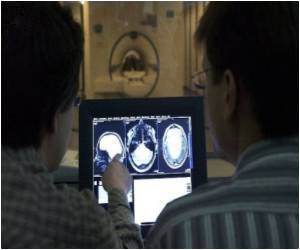The American Academy of Neurology has released a new guideline that may help doctors in making the diagnosis of Creutzfeldt-Jakob disease, a rare brain disorder.

Creutzfeldt-Jakob disease is a rare, always fatal brain disorder that involves quickly progressing dementia. New cases appear in about one person per million each year worldwide and confirming the diagnosis is challenging. People with the disease can have a wide range of symptoms. Many other conditions can cause similar symptoms, and with some of these conditions the dementia can be treated.
The guideline focused only on the diagnosis of sporadic Creutzfeldt-Jakob disease.
While several tests are available to help diagnose sporadic Creutzfeldt-Jakob disease, a brain biopsy is the most accurate test that can be performed on a person living with the disease. Brain biopsy is potentially dangerous.
The guideline examined the diagnostic accuracy of testing for a protein called 14-3-3 in the spinal fluid. The guideline authors reviewed all of the available evidence on the test, which included samples of 1,849 people with suspected sporadic Creutzfeldt-Jakob disease from nine studies.
They found that in cases where doctors strongly suspect Creutzfeldt-Jakob to be the cause of the dementia, the test can be helpful in reducing the uncertainty of the diagnosis. However, the test is not accurate enough to diagnose the disease with certainty or to rule it out completely. The test has a sensitivity of about 92 percent and a specificity of about 80 percent. Sensitivity is the percentage of patients with the disease who have a positive test result, and specificity is the percentage of patients who do not have the disease and who are correctly identified as having a negative test result.
Advertisement
"This means that if the physician considers the likelihood of Creutzfeldt-Jakob disease to be extremely low or extremely high, then testing for 14-3-3 protein would not be useful regardless of the result," said guideline author Taim Muayqil, MBBS, FRCPC, of King Saud University in Riyadh, Saudi Arabia, and a member of the American Academy of Neurology.
Advertisement
Source-Newswise














